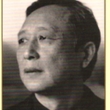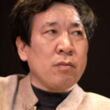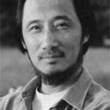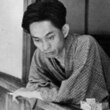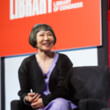The garlic ballads
Description
More Details
9780670854011
Similar Titles From NoveList
Similar Authors From NoveList
Published Reviews
Booklist Review
China's most popular novelist again takes us to the setting he so vividly brought to life in the very successfully filmed Red Sorghumthe peasant villages of China that he depicts as situated in a myth-ridden, brutal, and hyperreal landscape. This time his novel unfolds in the late 1980s, when a bumper crop of a village's lifeblood, garlic, turns the community upside down, for this year garlic is a glut on the market--blame official corruption. Against this backdrop, three cleverly intertwined stories, as fanciful as a French farce, as fantastic as a Latin American tale, play out. In them we see both the lyricism and the absurdity of contemporary Chinese life conjured by the deft hand of a talented writer. Mo Yan's is a powerful and original voice, using sophisticated techniques to get at some very raw truths. --Mary Ellen Sullivan
Publisher's Weekly Review
Through this powerful, fiercely lyrical story of a Chinese garlic farmer's 1988 revolt, Mo Yan (Red Sorghum) uncompromisingly portrays the harsh realities of an existence difficult to comprehend. Garlic farmer Gao Ma aches with love for Fang Jinju, whose parents are using her as a pawn in an arranged marriage. Defying her two thuggish brothers and her father, who in the past has savagely beaten her, Jinju, pregnant with Gao Ma's child, runs away with him but meets a tragic end. The grief-stricken farmer is thrown in jail for his alleged role as ringleader of a farmer's riot-an angry mob has destroyed a government building to protest a county official's refusal to buy the garlic crop amid a surfeit. Gao Ma's fate is entwined with that of another imprisoned protestor, Gao Yang, who preserves his sanity through the love of his wife and blind 10-year-old daughter. Mo Yan fuses gritty realism, stunning imagery, acid satire, bawdiness, dream sequences, interior monologues, and flashbacks to the Cultural Revolution. His luminous prose lays bare the corrupt bureaucracy, grinding poverty and pervasive oppression borne by millions of inhabitants in the People's Republic. (May) (c) Copyright PWxyz, LLC. All rights reserved
Library Journal Review
Mo Yan, author of the critically acclaimed Red Sorghum (LJ 3/15/93), which was made into a film directed by Zhang Yimou, presents a tale of brutality and corruption set in China in 1988. The novel focuses on the lives of three individuals imprisoned for their roles in the garlic revolt, a peasant uprising against corrupt government. Gao Ma has additional problems: his beloved has been promised to another in direct violation of the Marriage Laws, but the officials are siding with her family. The peasants are seen as adhering to the idealism of socialism and wondering how the new social formation came to be embodied in such corrupt officials. The action of the novel goes backward and forward in time, alternating between fact and fantasy. Overall, a very violent book, occasionally interrupted by scenes of domestic harmony; for a specialized readership.Debbie Bogenschutz, Cincinnati Technical Coll. (c) Copyright 2010. Library Journals LLC, a wholly owned subsidiary of Media Source, Inc. No redistribution permitted.
Kirkus Book Review
An epic tale, banned in China, that tells of ordinary lives brutally destroyed by greed--official and familial. Setting his story in an agricultural region of China, Mo Yan (Red Sorghum, 1993) takes a seemingly unlikely subject, the 1987 glut of garlic, and transforms it into fictional gold as the personal valiantly battles the pervasive political. Though recent reforms have restored private ownership of land, at a price, the farmers of Paradise County are still subordinate to Communist officialdom, which, having jettisoned much of its ideology, now uses its power just as savagely to enrich itself. Moving back and forth in time, in prose that is often lyrical, always vivid, the story is as much about love as it is about the greed that corrupts families as well as officials. Determined to punish the farmers, who'd rioted after a lengthy and futile wait to sell their garlic to the county government, the police arrest farmer Gao Yang, as well as the Fang family matriarch, Fourth Aunt. They also briefly capture another farmer, Gao Ma. As the three try to survive either in prison or on the lam, they remember the past. Gao Yang tells of being frequently beaten and harassed during his childhood and early manhood for being born into a family of the then-reviled landowning class; Fourth Aunt recalls her greedy sons' cruelty to her only daughter, Jinju, and how her husband was callously run over by an official, who refused to pay any damages; and Gao Ma relives the terrible beatings Jinju received after she'd run away with him, because her brothers wanted her to marry a man with money. With a litany of horrors so long and so unsparing--if unsurprising- -consolations are rare. An affecting vindication of the human spirit under extreme duress--from a writer of tremendous power and sympathy.
Library Journal Reviews
Mo Yan, author of the critically acclaimed Red Sorghum (LJ 3/15/93), which was made into a film directed by Zhang Yimou, presents a tale of brutality and corruption set in China in 1988. The novel focuses on the lives of three individuals imprisoned for their roles in the garlic revolt, a peasant uprising against corrupt government. Gao Ma has additional problems: his beloved has been promised to another in direct violation of the Marriage Laws, but the officials are siding with her family. The peasants are seen as adhering to the idealism of socialism and wondering how the new social formation came to be embodied in such corrupt officials. The action of the novel goes backward and forward in time, alternating between fact and fantasy. Overall, a very violent book, occasionally interrupted by scenes of domestic harmony; for a specialized readership.?Debbie Bogenschutz, Cincinnati Technical Coll. Copyright 1995 Cahners Business Information.
Publishers Weekly Reviews
Through this powerful, fiercely lyrical story of a Chinese garlic farmer's 1988 revolt, Mo Yan (Red Sorghum) uncompromisingly portrays the harsh realities of an existence difficult to comprehend. Garlic farmer Gao Ma aches with love for Fang Jinju, whose parents are using her as a pawn in an arranged marriage. Defying her two thuggish brothers and her father, who in the past has savagely beaten her, Jinju, pregnant with Gao Ma's child, runs away with him but meets a tragic end. The grief-stricken farmer is thrown in jail for his alleged role as ringleader of a farmer's riot-an angry mob has destroyed a government building to protest a county official's refusal to buy the garlic crop amid a surfeit. Gao Ma's fate is entwined with that of another imprisoned protestor, Gao Yang, who preserves his sanity through the love of his wife and blind 10-year-old daughter. Mo Yan fuses gritty realism, stunning imagery, acid satire, bawdiness, dream sequences, interior monologues, and flashbacks to the Cultural Revolution. His luminous prose lays bare the corrupt bureaucracy, grinding poverty and pervasive oppression borne by millions of inhabitants in the People's Republic. (May) Copyright 1995 Cahners Business Information.
Publishers Weekly Reviews
Banned in his native China, Yan's novel centers on a revolt among garlic farmers who are unable to sell their crop during a surfeit. (July) Copyright 1996 Cahners Business Information.



























